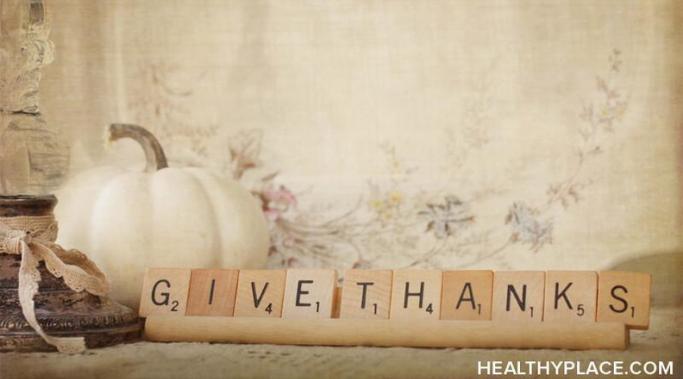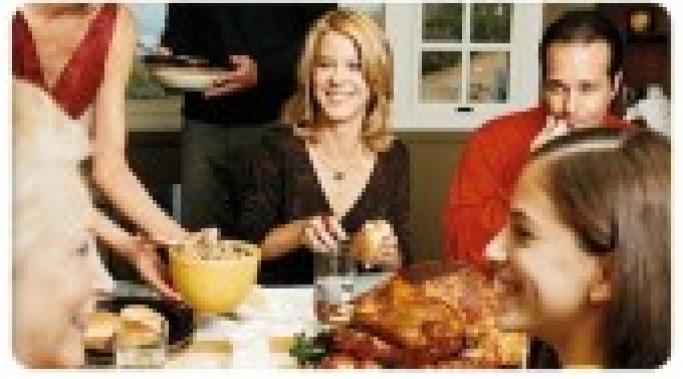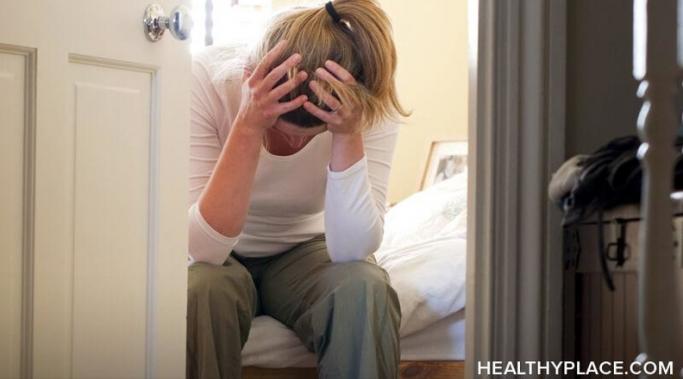Being thankful in eating disorder recovery is not always easy and, sometimes, it's nearly impossible to find a reason to be thankful. Thankful that I'm still alive? Sure, but there have been days that breathing has seemed more of a curse than a blessing. Thankful for family? Oh, you mean those jerks who shipped me to an eating disorder treatment center halfway across the country and wouldn't let me come home? So thankful for them. (Sorry, Mom and Dad! But this was definitely a thought of mine.) But usually, if you look closely enough, you will find a lot of reasons to be thankful in eating disorder recovery.
Friendships
Very often, I'll come across guidelines explaining or offering guidance on what to say or not to say to someone suffering from an eating disorder. Though these guidelines are useful and important in order to give those who are not familiar with eating disorders a frame of reference, they can still lead to awkward or hurtful interactions, simply because these kind of conversations surrounding eating disorders and mental illness are never easy to have.
The holidays are upon us with the party season in full swing and it can be a frightening time for someone suffering or recovering from an eating disorder. Most of you must know by now that I consider myself recovered and that I've maintained recovery from bulimia for over 5 years. However, that is no to say that I don't have some moments or even days when I feel more vulnerable to some potential eating disorder triggers; especially during the holidays
I've been listening to some audio teachings by Brene' Brown, a leading researcher on the subject of shame. Shame - that feeling of not being "enough," not being worthy - is something that we with eating disorders are all too familiar with. Brene' says early on, "If you don't claim shame, shame will claim you."
How many of our eating disorders and addictions began out of a place of shame? How many of us have allowed our shame to control our lives and for how long?
My friend, Annemarie, recently died of anorexia nervosa at the age of 34. Although I knew that she was quite ill, her death still shook me to my core and made me think about my own struggles and triumphs with anorexia.
Annemarie was one of those people you couldn't help but love. She had an infectious, quirky sense of humor and enjoyed hanging out with people and listening to her beloved Grateful Dead. She also was an upbeat person, and was a strong source of support for me. Not too long before her death, she sent me a text message that read, "Always look on the positive side."
Millions of people will gather together with family and loved ones to celebrate Thanksgiving. I want to stay home and curl up with a good book. However, Annemarie would insist that I spend the day with my family and friends.
And so that is what I plan to do.
Surviving ED really is the fulfillment of a dream: to reach out to other people who have eating disorders, and to offer them both honesty and hope and perhaps help them feel just a little bit less alone in their own journeys of recovery.
Surviving ED is one-year old this week. The road of recovery has been long and winding, with many twists and turns, lapses and relapses, and picking myself up to try just one more time. The journey of recovery sometimes feels endless and tiring, and I know that it is hard to not want to give up.
However, at the end is freedom from anorexia and ultimately, a full and healthy life.
For weeks, I have struggled to do anything beyond the bare minimum. Eating disorders are in part coping mechanisms, and can be deceptively helpful in masking painful emotions. That can make recovery from an eating disorder very difficult, because most people struggle with painful emotions and would rather push these feelings aside than face them.
I always like to think I am different - but I am not - and that I can push through the emotions the recovery stirs up. Each time I begin the recovery process with a fierce determination to beat anorexia nervosa for the last time. I feel strong and sure as I start to eat regular meals and snacks and stop all related eating disorder behaviors, and I know in my heart that I will travel the road to full recovery without roadblocks or detours.
But emotions can only be suppressed for so long, and I inevitably become anxious and depressed as I begin to eat like a normal person. Determination fades and strength wavers as all the emotions that I couldn't feel while in the middle of my eating disorder come roaring back, leaving me cowering in the corner.
I recently learned that several friends of mine also are struggling with their eating disorders, and that it hurts even though I also have an eating disorder.
Eating disorders can be extremely isolating and lonely. Counting calories or throwing up your food after you eat makes it hard to be around other people. There is the fear that you might eat too much, or that someone will notice that you are just pretending to eat. It takes a lot of energy to hide your eating disorder symptoms, and that makes it easier to stay home and disconnect from your friends.
I have been very lucky. My friends know about my struggles with anorexia, and we have stayed close in spite of my attempts to isolate and hide at times. This week I was again reminded how important friends are to me, and how they play a role in helping me stay in recovery.







